Find Help
More Items From Ergsy search
-
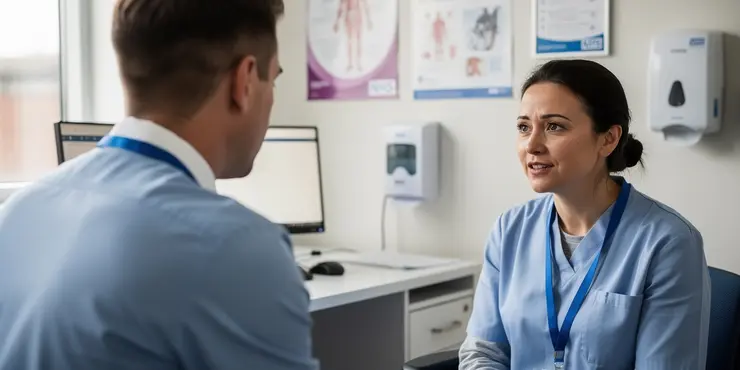
How to treat glandular fever | NHS
Relevance: 100%
-
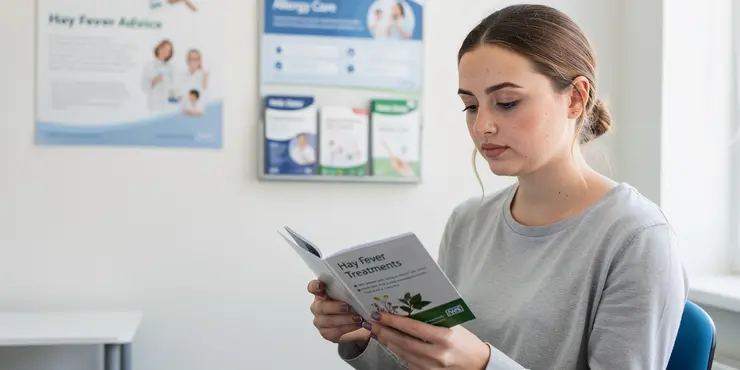
Are there any treatments for hay fever?
Relevance: 41%
-
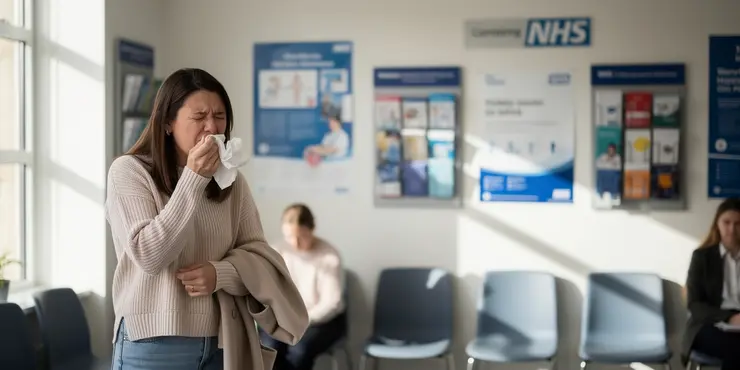
What is hay fever?
Relevance: 40%
-
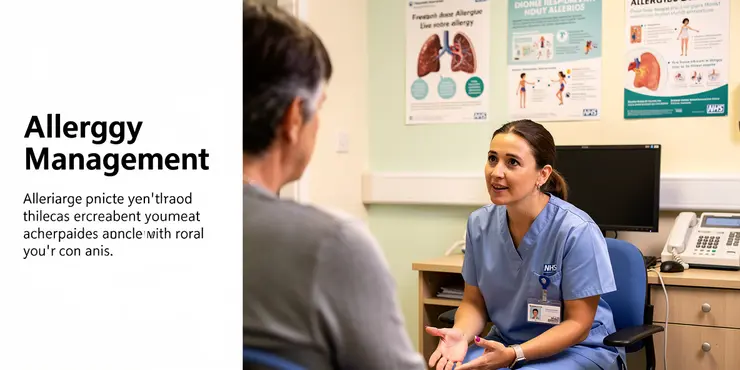
Is there a link between hay fever and asthma?
Relevance: 37%
-
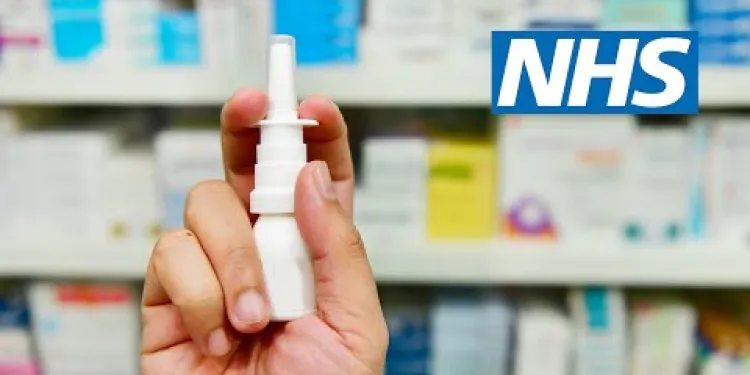
Hay fever advice | NHS
Relevance: 37%
-
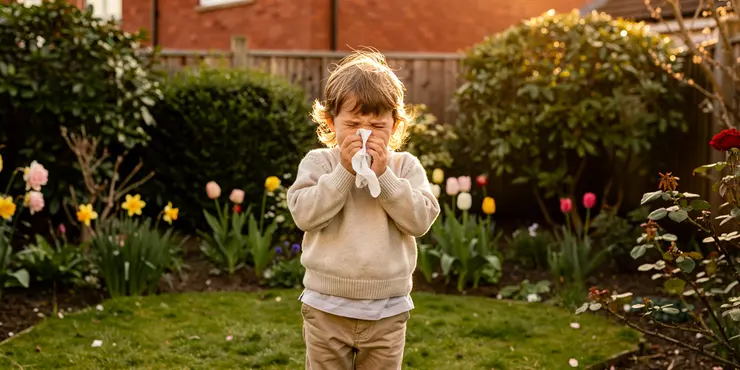
Can children develop hay fever?
Relevance: 37%
-
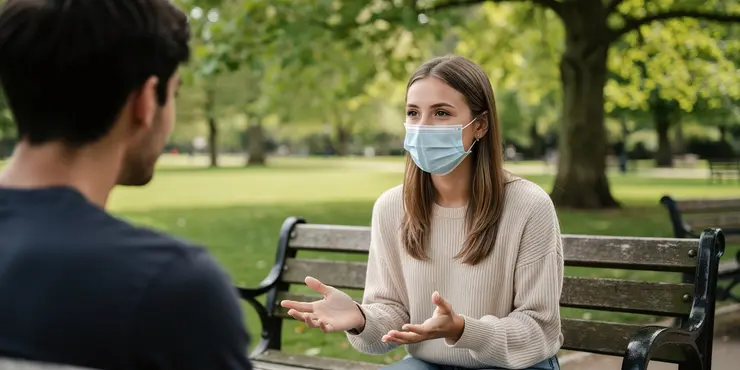
Do masks help with hay fever?
Relevance: 36%
-
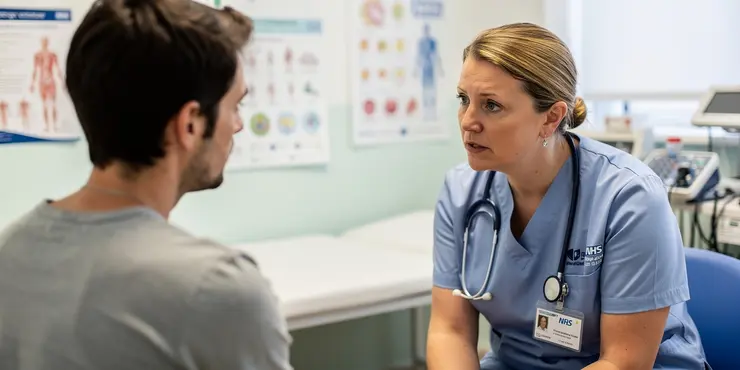
Can hay fever occur year-round?
Relevance: 36%
-
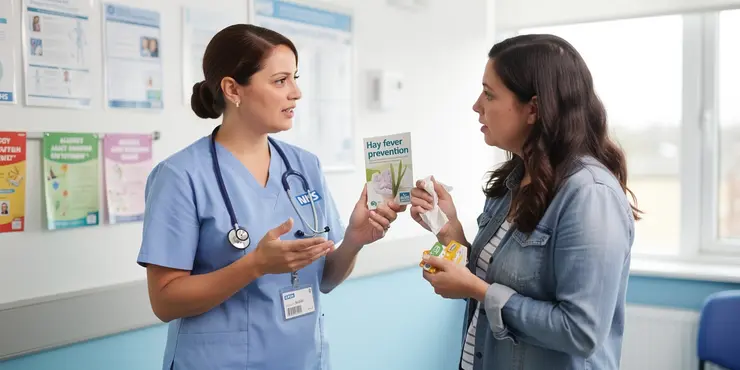
Can hay fever be prevented?
Relevance: 35%
-
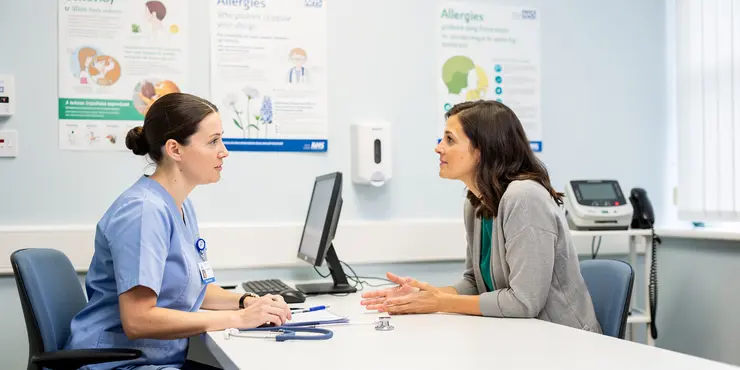
What are the common symptoms of hay fever?
Relevance: 35%
-
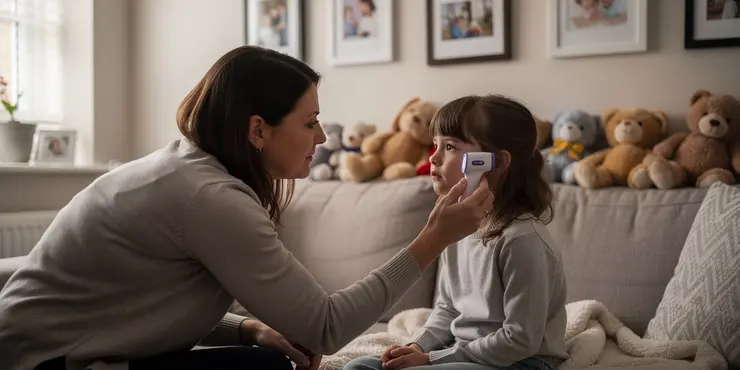
Caring for a child with fever | NHS
Relevance: 34%
-

Can dengue fever be contracted in the UK?
Relevance: 34%
-

Do pets contribute to hay fever?
Relevance: 34%
-

Antihistamines how they work with hay fever
Relevance: 34%
-

Are some people more prone to hay fever?
Relevance: 34%
-

How does pollen affect people with hay fever?
Relevance: 34%
-
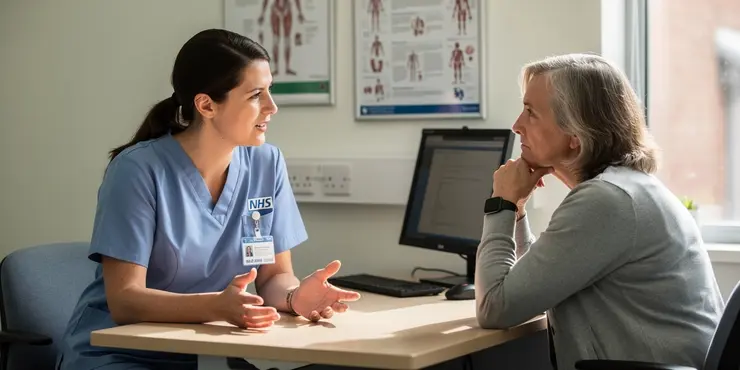
Why are experts warning of rising hay fever cases?
Relevance: 33%
-
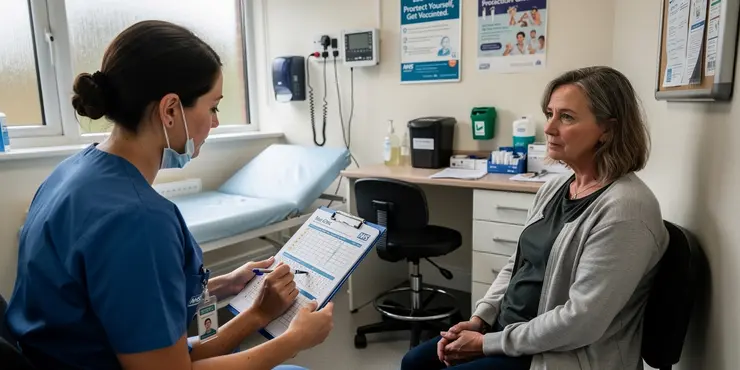
Is there a risk of yellow fever being spread by mosquitoes in the UK?
Relevance: 33%
-
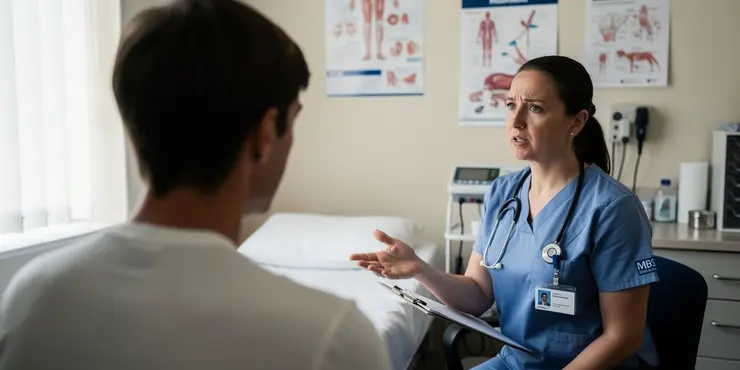
Can hay fever symptoms mimic other conditions?
Relevance: 33%
-

Can diet influence hay fever symptoms?
Relevance: 33%
-
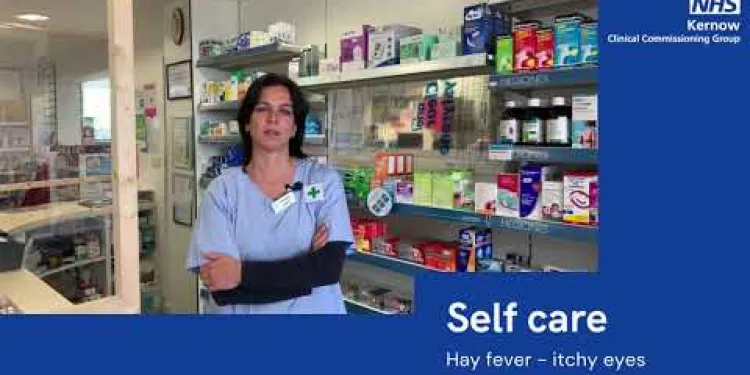
Self care - hay fever itchy eyes
Relevance: 33%
-
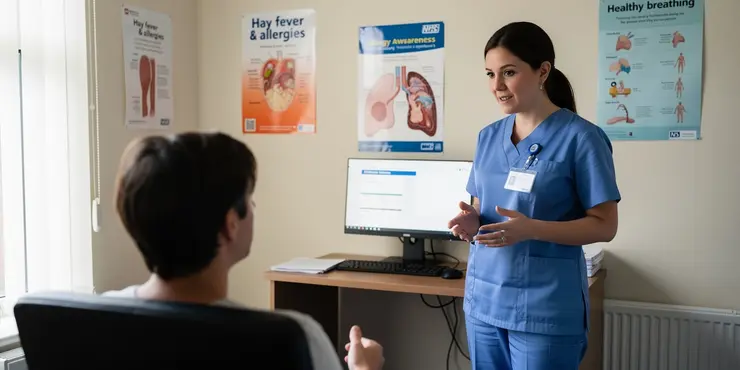
Do all plants produce pollen that causes hay fever?
Relevance: 32%
-
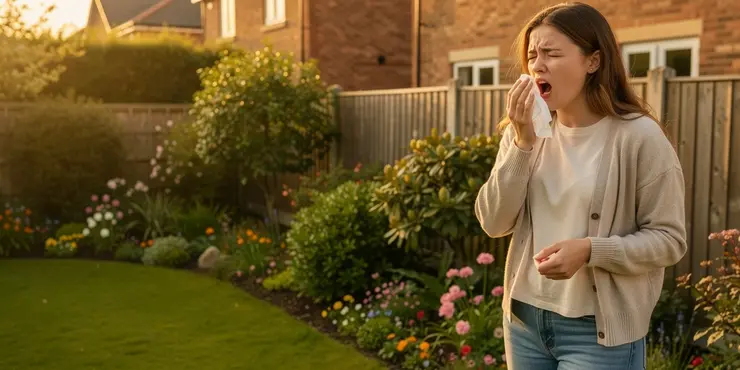
Experts Warn of Rising Hay Fever Cases as Pollen Counts Surge
Relevance: 32%
-

Is hay fever more common in urban areas?
Relevance: 32%
-

Which medication should be avoided for children with fevers?
Relevance: 32%
-
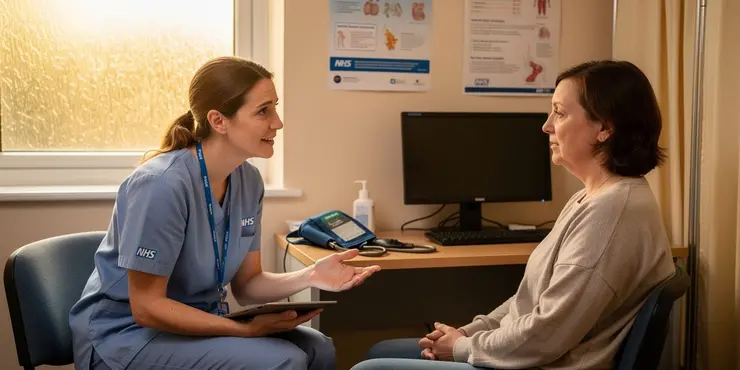
What is Dengue Fever?
Relevance: 30%
-
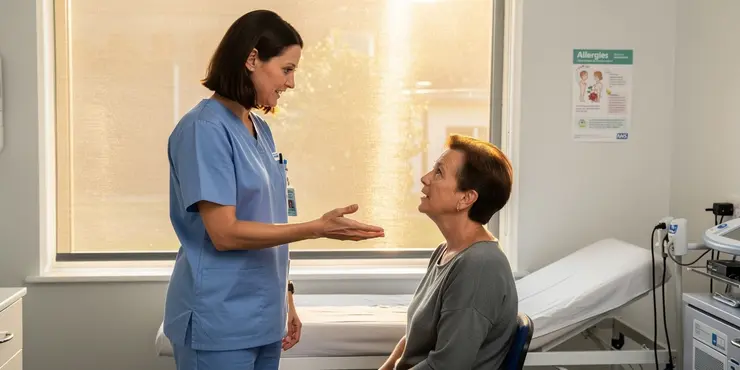
Can mosquito screens help reduce hay fever symptoms?
Relevance: 28%
-

Can lifestyle changes help manage pain and fever during pregnancy?
Relevance: 28%
-
Is there a treatment for measles?
Relevance: 27%
-
Can Dengue fever be transmitted through blood transfusions?
Relevance: 27%
-
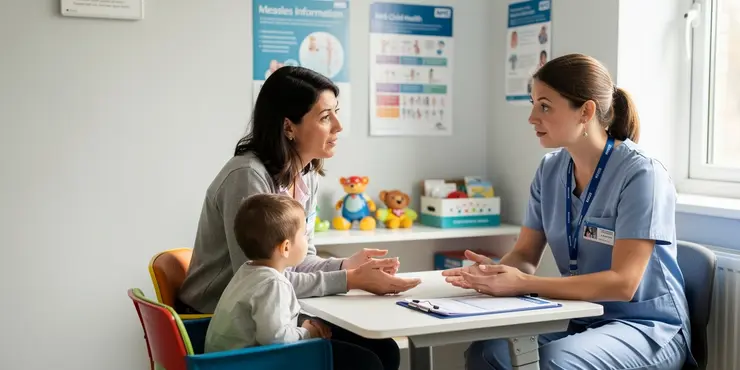
Is there a treatment for measles?
Relevance: 26%
-
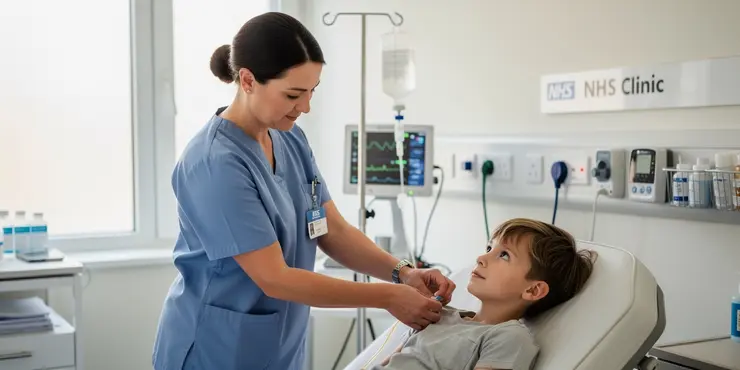
What is the treatment for bacterial meningitis?
Relevance: 25%
-
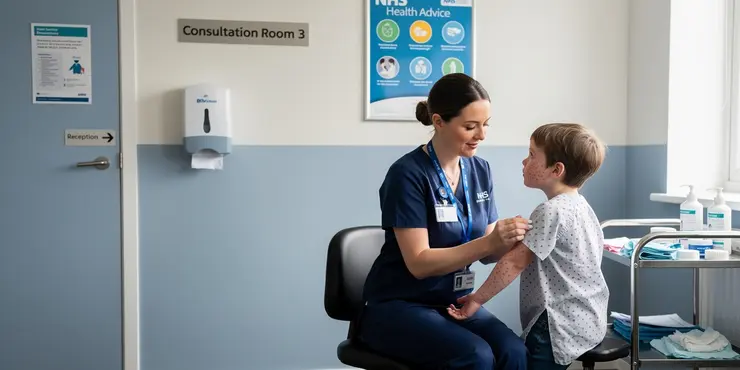
What is the treatment for chickenpox?
Relevance: 25%
-
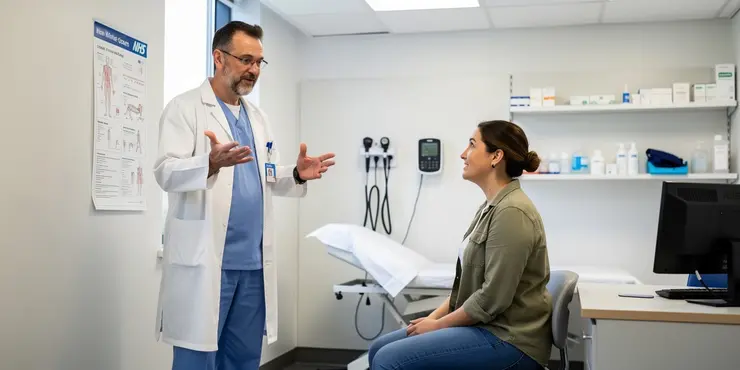
Are there treatments for West Nile Virus?
Relevance: 24%
-
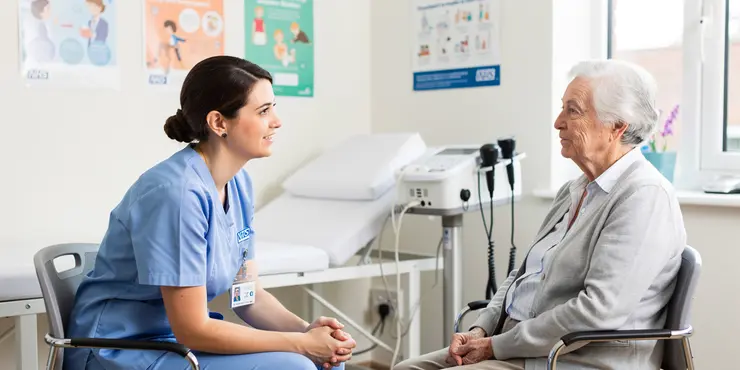
Understanding Seasonal Flu: Prevention and Treatment
Relevance: 23%
-

What treatments are available for Super Flu?
Relevance: 22%
-

How long does a typical hay fever season last?
Relevance: 22%
-

What is the treatment for appendicitis?
Relevance: 21%
-
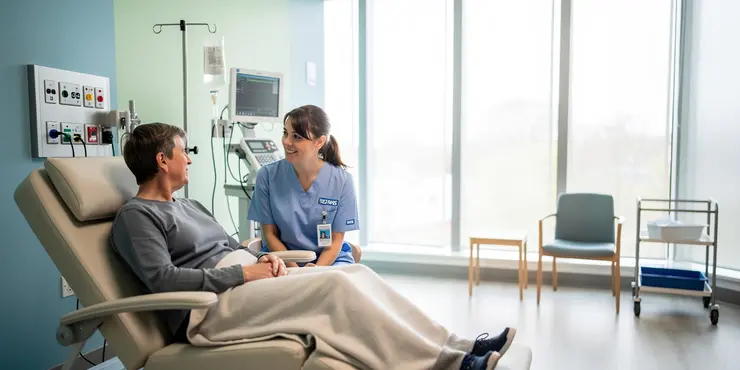
Having chemotherapy and other treatments in the Day Treatment Unit
Relevance: 21%
-
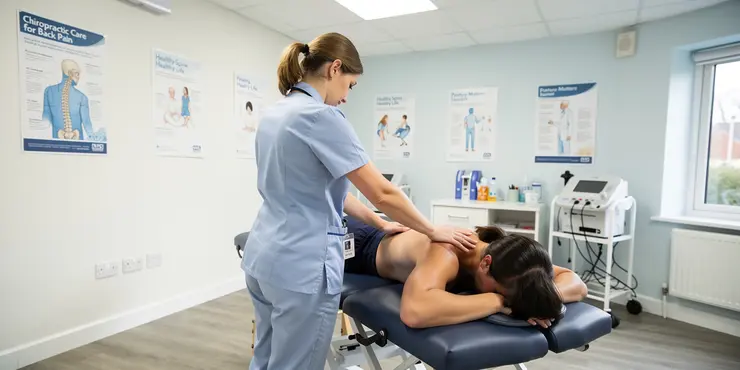
Are chiropractic treatments safe?
Relevance: 20%
How to Treat Glandular Fever | NHS
Understanding Glandular Fever
Glandular fever, also known as infectious mononucleosis or "mono," is a viral infection commonly caused by the Epstein-Barr virus (EBV). The condition is frequently seen in teenagers and young adults, although it can affect people of all ages. Symptoms may include severe fatigue, high fever, swollen lymph glands, and a sore throat. While there is no specific cure, the NHS offers several recommendations for managing and alleviating symptoms.
Rest and Hydration
One of the primary treatments for glandular fever is ample rest. Patients are advised to take it easy and get plenty of sleep. Fatigue can last for several weeks, so it's crucial to listen to your body and avoid strenuous activities. Additionally, staying hydrated is essential. Drink plenty of fluids such as water, herbal teas, and soups to keep your throat moist and help your body fight the infection.
Pain Relief and Fever Control
Over-the-counter medications like paracetamol or ibuprofen can alleviate pain and reduce fever. These medications are effective for easing symptoms such as headaches, fever, and muscle pain. However, always follow the dosage instructions on the packaging or consult a healthcare provider for guidance, especially if you have any underlying medical conditions or are taking other medications.
Throat Soothers
A sore throat is a common symptom of glandular fever, and there are several ways to help soothe it. Gargling with warm salt water, sucking on throat lozenges, or using over-the-counter throat sprays can provide much-needed relief. Additionally, consuming soft foods and avoiding spicy, acidic, or overly crunchy foods can help reduce throat irritation.
Avoid Alcohol and Smoking
It's particularly important to avoid alcohol and smoking during your recovery. Alcohol can exacerbate liver inflammation, a potential complication of glandular fever, and smoking can further irritate your throat. Steering clear of these substances will help your body heal more efficiently.
Monitor and Follow-up
While most cases of glandular fever resolve on their own, complications can arise. It's important to monitor your symptoms and seek medical advice if you experience severe pain, difficulty breathing, or swallowing, or if your symptoms last longer than six weeks. Follow-up appointments may be necessary to ensure you are recovering properly.
Conclusion
Glandular fever can be a debilitating illness, but following the NHS's recommendations for rest, hydration, pain relief, and symptom management can significantly aid in your recovery. Avoid taxing your body with strenuous activities, alcohol, and smoking, and be vigilant about monitoring your symptoms. If you have concerns or your condition worsens, seek medical attention promptly.
How to Treat Glandular Fever
What is Glandular Fever?
Glandular fever is also called "mono." It is a virus. Many people who get it are teenagers or young adults, but anyone can catch it. You might feel very tired, have a high fever, swollen neck glands, and a sore throat. There is no special medicine to cure it, but you can do things to feel better.
Get Rest and Drink Fluids
Rest is very important when you have glandular fever. Try to sleep a lot and take it easy. You might feel tired for weeks, so don’t push yourself too hard. Also, drink a lot of water, herbal teas, or soups. This helps keep your throat wet and helps your body fight the virus.
Pain and Fever
You can take medicine like paracetamol or ibuprofen to feel better. These can help with headaches, body aches, and fever. Always check how much medicine you can take, or ask a doctor, especially if you take other medicines or have other health problems.
Help for a Sore Throat
If your throat hurts, gargle with warm salt water. You can also suck on throat lozenges or use sprays from the pharmacy. Eat soft foods and stay away from spicy, sour, or crunchy foods to keep your throat from hurting more.
Stay Away from Alcohol and Smoking
Do not drink alcohol or smoke while you are getting better. Alcohol can make it harder for your liver to heal, and smoking can irritate your throat. Avoiding these can help your body heal faster.
Keep an Eye on Your Symptoms
Most people get better from glandular fever by themselves. But if you feel a lot of pain, can't breathe or swallow, or if you don’t feel better after six weeks, see a doctor. You might need to have more check-ups to make sure you are okay.
In Summary
Glandular fever can make you feel very sick, but resting, drinking fluids, and taking simple medicines can help you recover. Don’t do any hard work, stay away from alcohol and smoking, and watch your symptoms. If you feel worse, see a doctor right away.
Frequently Asked Questions
What is glandular fever?
Glandular fever, also known as infectious mononucleosis, is a viral infection caused by the Epstein-Barr virus (EBV). It primarily affects teenagers and young adults.
What are the common symptoms of glandular fever?
Common symptoms include a high temperature, sore throat, swollen glands in the neck, extreme tiredness, and occasionally, jaundice. Symptoms can last for several weeks.
How is glandular fever diagnosed?
Glandular fever is typically diagnosed through a combination of medical history, physical examination, and blood tests to detect antibodies against the Epstein-Barr virus.
Is there a cure for glandular fever?
There is no specific cure for glandular fever. The infection usually clears up on its own. Treatment focuses on relieving symptoms.
What treatments are available for glandular fever?
Treatments include getting plenty of rest, drinking fluids, taking painkillers like paracetamol or ibuprofen to relieve pain and fever, and soothing a sore throat with throat lozenges or saltwater gargles.
How long does it take to recover from glandular fever?
Recovery time varies, but it usually takes 2 to 4 weeks to start feeling better. Some people might experience fatigue for several months.
Can I go to work or school if I have glandular fever?
It’s important to rest at home and avoid going to work or school if you have glandular fever, especially during the early stages when symptoms are worst.
Is glandular fever contagious?
Yes, glandular fever is contagious. It spreads through saliva, so it can be passed on through kissing, sharing utensils, or being in close contact with someone who has the virus.
How can I prevent spreading glandular fever to others?
To prevent spreading glandular fever, avoid kissing and sharing utensils with others, and wash your hands regularly.
Can glandular fever cause complications?
Complications are rare but can include liver inflammation (hepatitis), spleen enlargement, and anemia. Seek medical advice if you experience severe abdominal pain or yellowing of the skin or eyes.
Should I see a doctor for glandular fever?
Yes, it’s advisable to see a doctor if you suspect glandular fever, especially if you have severe symptoms or complications.
Can I take antibiotics for glandular fever?
Antibiotics are not effective against viral infections like glandular fever. They are only prescribed if there is a secondary bacterial infection.
Can glandular fever recur?
It is uncommon for glandular fever to recur, but the Epstein-Barr virus remains dormant in the body after the initial infection and can reactivate in certain circumstances.
Can I exercise if I have glandular fever?
Avoid strenuous activities and contact sports, especially if you have an enlarged spleen, as vigorous activities could increase the risk of spleen rupture. Consult your doctor before resuming exercise.
Is there a vaccine for glandular fever?
Currently, there is no vaccine available for glandular fever. The best prevention is avoiding exposure to the virus.
What is glandular fever?
Glandular fever is an illness. It makes you feel very tired and unwell. It is sometimes called the "kissing disease" because it can spread through kissing.
Here are some things to help understand it better:
- It can give you a sore throat.
- You might have a fever, which means feeling hot or cold.
- It can make your neck feel swollen.
- Most people get better after a few weeks, but it can take a long time for some.
If you are tired or unwell, talk to an adult you trust. They can help you see a doctor.
Glandular fever is a sickness you can catch. It has another name: infectious mononucleosis. A virus called the Epstein-Barr virus (EBV) makes people sick with it. Glandular fever usually happens in teenagers and young adults.
What signs show you have glandular fever?
Glandular fever is a sickness that can make you feel very tired and unwell. Here are some signs you might have it:
- Tired all the time
- Sore throat
- Swollen neck
- Fever (feeling hot)
If you feel these signs, tell a grown-up. They can help you see a doctor.
Common signs you might feel are: a high temperature, a sore throat, swollen bumps in your neck, feeling very tired, and sometimes, yellow skin or eyes. These signs can stay for a few weeks.
How do doctors know if you have glandular fever?
Doctors check for glandular fever by asking questions about how you feel. They might ask if you are tired or have a sore throat.
Doctors also do a blood test. A blood test shows if you have the virus that causes glandular fever.
If you are feeling unwell, tell a grown-up so they can help you see a doctor.
Doctors use a few things to find out if you have glandular fever. First, they ask about your health history. Then, they do a check-up. Finally, they take a blood test to look for something called antibodies. These antibodies help find the Epstein-Barr virus.
If reading is tricky, try using text-to-speech apps. They can read words out loud for you. Drawing pictures of what you read can also help you understand better.
Can glandular fever be fixed?
No, there is no cure for glandular fever.
But it can get better with rest, drinking lots of water, and taking medicine to help with pain and fever. It might take a few weeks to a few months to feel normal again.
Sometimes, doctors can help you feel better by giving advice or medicine.
Tools like picture cards and simple charts can help you understand more about glandular fever and how to feel better.
There is no special medicine to cure glandular fever. The sickness usually goes away by itself. Treatment helps to make you feel better.
How can you feel better if you have glandular fever?
If you have glandular fever, here's how you can help yourself feel better:
- Rest: Make sure you get lots of sleep.
- Drink fluids: Water and juice will help keep you strong.
- Pain relief: Medicine like paracetamol can help if you have a sore throat or headache.
- Eat well: Try to eat healthy foods.
If you need help, talk to a doctor or a nurse. They can give you good advice.
If you are not feeling well, here are some things you can do:
- Get lots of rest. This means sleeping and staying in bed.
- Drink lots of water or juice.
- If you have a headache or feel hot, you can take medicine like paracetamol or ibuprofen.
- If your throat hurts, you can suck on throat sweets or rinse your mouth with warm salty water.
These can help you feel better. If you are still not feeling well, it might be a good idea to talk to a doctor or ask an adult for help.
How long does it take to feel better after glandular fever?
It can take a few weeks to start feeling better. Some people need a few months.
Take plenty of rest. Drink lots of water and eat healthy food.
If you need help, ask a doctor. They can give advice.
Getting better can take different times for different people. Most people start to feel good again after 2 to 4 weeks. But some people might feel really tired for a few months.
Can I go to work or school if I have glandular fever?
Glandular fever is an illness that can make you very tired and unwell. It is important to rest and get better.
If you have glandular fever, it's best to stay home and rest. You should not go to work or school until you feel better.
Tell your doctor or a grown-up if you feel unwell. They can help you decide when you are well enough to go back to work or school.
Remember to drink lots of water and eat healthy foods to help your body heal. It's also good to get plenty of sleep.
If you have glandular fever, it's important to stay home and rest. Don't go to work or school, especially when you feel really sick at the start.
Can you catch glandular fever from someone else?
Yes, you can catch glandular fever. It spreads easily from one person to another.
Yes, glandular fever can spread from person to person. It spreads through spit. You can catch it by kissing someone who has it, sharing cups or forks, or being very close to them.
How can I stop giving glandular fever to other people?
To stop spreading glandular fever, do not kiss or share forks, spoons, or cups with other people. Remember to wash your hands a lot.
Can glandular fever cause problems?
Glandular fever can make you really tired and sick. Sometimes, it can lead to more problems. Rest well and drink lots of water. Tell your doctor if you feel worse.
Problems don't happen often, but sometimes the liver can get swollen (hepatitis), the spleen can get bigger, or you might get anemia. Talk to a doctor if you have very bad tummy pain or if your skin or eyes turn yellow.
Do I need to see a doctor for glandular fever?
If you feel very tired and have a sore throat, it might be glandular fever.
You should see a doctor if:
- You feel really sick and cannot eat or drink food.
- Your tummy hurts a lot.
- Your neck or armpit has big lumps.
- Your skin or eyes turn yellow.
A doctor can give you advice and help you feel better. You can also ask an adult for help. Using picture books or videos can make learning about glandular fever easier.
Yes, it is a good idea to see a doctor if you think you have glandular fever. This is important if you feel very sick or have other problems.
Can I take medicine for glandular fever?
Glandular fever is an illness caused by a virus. Antibiotics are medicines for bacteria, not viruses. So, antibiotics do not help with glandular fever.
If you have glandular fever, here are some things that might help:
- Rest a lot. Get plenty of sleep.
- Drink lots of water and healthy drinks.
- Take pain relievers like paracetamol if you are sore. Ask a grown-up for help.
- Eat healthy food to help your body get better.
- If you feel very sick, see a doctor or talk to a nurse.
Antibiotics do not work on virus infections like glandular fever. Doctors only give them if there is another bacterial infection.
Can glandular fever come back?
Glandular fever is an illness. It can make you feel very tired and unwell.
Sometimes, people worry if this sickness will come back after they get better.
If you are worried, it's a good idea to talk to a doctor. They can help you feel better and answer questions.
Here’s how you can help yourself:
- Rest a lot. Your body needs time to heal.
- Drink water to stay hydrated.
- Eat healthy food to give your body energy.
- Ask someone if you need help. It's okay to ask for support.
It is not common for glandular fever to come back. But, the Epstein-Barr virus stays asleep in the body after you first get it. Sometimes it can wake up again.
Can I exercise if I have glandular fever?
If you have glandular fever, it is important to rest. Glandular fever can make you very tired and weak.
Here are some simple tips:
- Listen to your body. If you feel too tired, it's okay to rest.
- Start with gentle activities like walking if you feel up to it.
- Avoid heavy exercise until you feel better.
Always talk to a doctor before starting exercise if you have been sick.
You can use apps or alarms to remind you to rest or take it easy.
Don't do hard exercise or sports where you might get hit, especially if your spleen is swollen. Doing these things can be dangerous and hurt your spleen. Talk to your doctor before you start exercising again.
Can you get a shot to stop glandular fever?
No, there is no shot to stop glandular fever right now.
If you have questions, it can help to talk to a doctor.
Right now, there is no shot to stop glandular fever. The best way to stay safe is to keep away from the virus.
Useful Links
This website offers general information and is not a substitute for professional advice.
Always seek guidance from qualified professionals.
If you have any medical concerns or need urgent help, contact a healthcare professional or emergency services immediately.
Some of this content was generated with AI assistance. We’ve done our best to keep it accurate, helpful, and human-friendly.
- Ergsy carfully checks the information in the videos we provide here.
- Videos shown by Youtube after a video has completed, have NOT been reviewed by ERGSY.
- To view, click the arrow in centre of video.
- Most of the videos you find here will have subtitles and/or closed captions available.
- You may need to turn these on, and choose your preferred language.
- Go to the video you'd like to watch.
- If closed captions (CC) are available, settings will be visible on the bottom right of the video player.
- To turn on Captions, click settings .
- To turn off Captions, click settings again.
More Items From Ergsy search
-

How to treat glandular fever | NHS
Relevance: 100%
-

Are there any treatments for hay fever?
Relevance: 41%
-

What is hay fever?
Relevance: 40%
-

Is there a link between hay fever and asthma?
Relevance: 37%
-

Hay fever advice | NHS
Relevance: 37%
-

Can children develop hay fever?
Relevance: 37%
-

Do masks help with hay fever?
Relevance: 36%
-

Can hay fever occur year-round?
Relevance: 36%
-

Can hay fever be prevented?
Relevance: 35%
-

What are the common symptoms of hay fever?
Relevance: 35%
-

Caring for a child with fever | NHS
Relevance: 34%
-

Can dengue fever be contracted in the UK?
Relevance: 34%
-

Do pets contribute to hay fever?
Relevance: 34%
-

Antihistamines how they work with hay fever
Relevance: 34%
-

Are some people more prone to hay fever?
Relevance: 34%
-

How does pollen affect people with hay fever?
Relevance: 34%
-

Why are experts warning of rising hay fever cases?
Relevance: 33%
-

Is there a risk of yellow fever being spread by mosquitoes in the UK?
Relevance: 33%
-

Can hay fever symptoms mimic other conditions?
Relevance: 33%
-

Can diet influence hay fever symptoms?
Relevance: 33%
-

Self care - hay fever itchy eyes
Relevance: 33%
-

Do all plants produce pollen that causes hay fever?
Relevance: 32%
-

Experts Warn of Rising Hay Fever Cases as Pollen Counts Surge
Relevance: 32%
-

Is hay fever more common in urban areas?
Relevance: 32%
-

Which medication should be avoided for children with fevers?
Relevance: 32%
-

What is Dengue Fever?
Relevance: 30%
-

Can mosquito screens help reduce hay fever symptoms?
Relevance: 28%
-

Can lifestyle changes help manage pain and fever during pregnancy?
Relevance: 28%
-
Is there a treatment for measles?
Relevance: 27%
-
Can Dengue fever be transmitted through blood transfusions?
Relevance: 27%
-

Is there a treatment for measles?
Relevance: 26%
-

What is the treatment for bacterial meningitis?
Relevance: 25%
-

What is the treatment for chickenpox?
Relevance: 25%
-

Are there treatments for West Nile Virus?
Relevance: 24%
-

Understanding Seasonal Flu: Prevention and Treatment
Relevance: 23%
-

What treatments are available for Super Flu?
Relevance: 22%
-

How long does a typical hay fever season last?
Relevance: 22%
-

What is the treatment for appendicitis?
Relevance: 21%
-

Having chemotherapy and other treatments in the Day Treatment Unit
Relevance: 21%
-

Are chiropractic treatments safe?
Relevance: 20%


